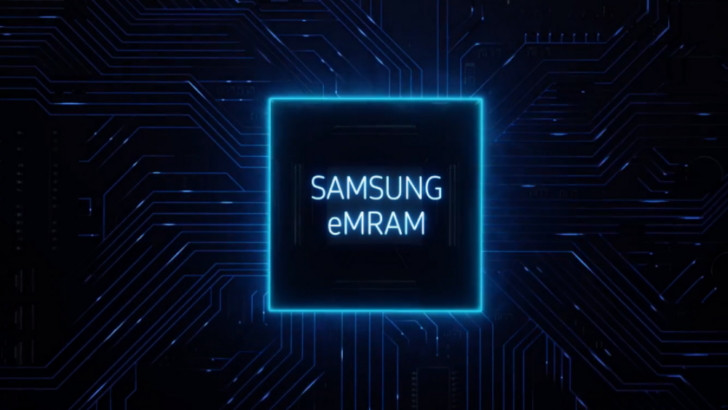
Samsung Electronics has announced that it has commenced mass production of its first commercial embedded magnetic random access memory (eMRAM) product. It is based on the company’s 28-nanometer(nm) fully-depleted silicon-on-insulator (FD-SOI) process technology, called 28FDS.
Samsung’s 28FDS-based eMRAM solution offers unprecedented power and speed advantages with lower cost. Since eMRAM does not require an erase cycle before writing data, its writing speed is approximately a thousand times faster than eFlash. Also, eMRAM uses lower voltages than eFlash, and does not consume electric power when in power-off mode, resulting in great power efficiency.
Since an eMRAM module can easily be inserted in the back-end of the process by adding the least number of layers, it has less dependence on the front-end of the process for easy integration with existing logic technologies, such as bulk, fin, and FD-SOI transistor.
By combining with 28FD-SOI for better transistor control and minimizing leakage current through body-bias control, Samsung’s eMRAM solution will provide differentiated benefits for a variety of applications including microcontroller unit (MCU), internet of things (IoT), and artificial intelligence (AI).
Ryan Lee, vice president of foundry marketing at Samsung Electronics said:
We are very proud of this achievement in offering right embedded non-volatile memory (eNVM) technology after overcoming complicated challenges of new materials. By integrating eMRAM with existing proven logic technologies, Samsung Foundry continues to expand its eNVM process portfolio to provide distinct competitive advantages and excellent manufacturability to meet customers and market requirement.
